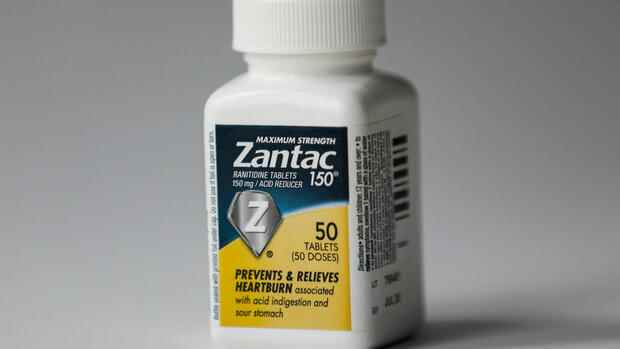Several pharmaceutical companies are threatened with lawsuits in the USA because of possible carcinogenic ingredients.
(Photo: Reuters)
Frankfurt A stomach medicine that has been banned from the market since 2020 is causing growing nervousness among pharmaceutical investors. They fear that lawsuits for damages for the drug Zantac, which was used primarily to treat heartburn and stomach ulcers, could lead to billions in burdens on a number of pharmaceutical companies, including Sanofi and Glaxo-Smithkline (GSK). But Pfizer, Boehringer Ingelheim and other pharmaceutical companies could also be affected by the case.
Both GSK and Sanofi lost around 20 percent in value on Wednesday and Thursday after analysts pointed out the risks of the process. The healthcare group Haleon, formed by Pfizer and GSK and recently listed on the stock exchange, lost about 15 percent. Pfizer shares also fell.
The values were able to recover somewhat on Thursday afternoon. All in all, the losses in value still add up to around 40 billion dollars within just two days.
According to the Haleon stock market prospectus, around 2,150 claims for damages are pending against GSK and Pfizer in the USA because of possible cancer risks at Zantac. The first procedures are scheduled to begin in August. The plaintiffs accuse the manufacturers of not having warned sufficiently or not at all of the health risks.
Top jobs of the day
Find the best jobs now and
be notified by email.
The drug Zantac with the active ingredient ranitidine was developed in the late 1970s by the British Glaxo, which is now part of the GSK group. In the 1980s, the drug was at times the top-selling drug in the world. Later, it was also sold temporarily by Pfizer and Johnson & Johnson, and after the patent expired also by various generic companies. In addition, it was on the market as an over-the-counter product.
In 2006, Boehringer paid over $500 million for the rights to sell Zantac as an over-the-counter drug. Ten years later, the Ingelheim group sold its self-medication division to Sanofi.
Number of Zantac lawsuits could increase
In 2019, regulatory authorities in the US and Europe ordered the first recalls of Ranitid products because of the presence of nitrosodimethylamines (NDMA), which are considered potentially carcinogenic. It later turned out that this substance can apparently also be formed as a decomposition product of the actual active substance, for example if the substance is stored for too long and at high temperatures.
In April 2020, the US health authority FDA and, shortly afterwards, the European authorities ordered the ban on Zantac and other ranitidine products. The FDA has ruled that as NDMA accumulates in drugs over time, it can lead to “unacceptable” levels.
In view of the formerly very high number of prescriptions for Zantac and other ranitidine products, there is a risk for the pharmaceutical manufacturers that the number of lawsuits could increase significantly. According to data from market researchers in the USA, more than three million people were still treated with the active ingredient in 2019.
The uncertainty with regard to the possible costs for the affected manufacturers is correspondingly high. According to Bloomberg, analysts at Morgan Stanley estimate the cost of cleaning up the wave of lawsuits at between $10 billion and $45 billion.
More: Pfizer on a shopping spree: This is how the pharmaceutical giant wants to grow with the corona billions
